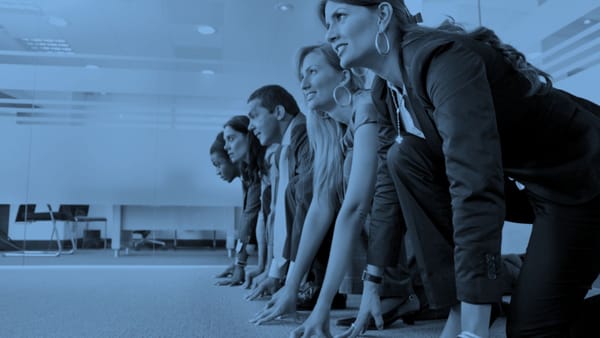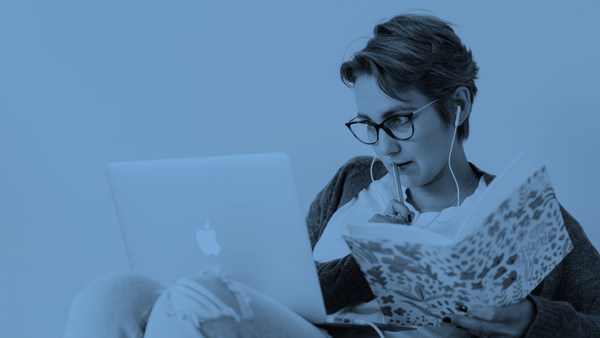Digging deep for some flexibility

Hi there,
Last week, I had the pleasure of speaking at the Health & Wellbeing at Work conference in Birmingham. It's a fantastic annual event, showcasing the best new research and practice when it comes to workplace health. I was thrilled to be asked to contribute, especially given the quality of the other speakers.


My talk focused on how to equip employees with the skills they need to sustainably overcome inevitable challenges and setbacks at work. Not crises or major illnesses, but the kinds of daily sources of annoyance and psychological discomfort that can slow us down, erode job satisfaction and dent our ability to cope.
I presented the Acceptance and Commitment Theory (ACT) skillset as an evidence-based and impactful intervention, as it boosts our psychological flexibility. And we know from decades of high quality research that this in turn boosts our wellbeing and our persistence towards our meaningful goals. So, instead of getting slowed down by real or anticipated discomfort, we learn to see it as part of doing meaningful things and keep going.
Once back in London, I recorded a version of my talk (with some inevitable changes) and released it as a podcast episode and video.
🎧 You can find Ep 182 of My Pocket Psych wherever you get your podcasts, or direct from this link. And you can watch the video of my presentation below.
Read on to find out how I recently brought these skills to life when on the other side of the planet.
"Psychologist, heal thyself!"
I often find myself having to make the point that, just because I understand so much of how we think, feel and behave as humans at work, being a psychologist doesn't make me some kind of virtuous exemplar of all things wellbeing and productivity! Knowing, as they say, isn't the same as doing.
But last month, I had the perfect opportunity to reach into my own psychologist's toolkit to navigate the kind of setback that can really suck the joy out of life.
As I mentioned in last month's newsletter, I planned to spend a week on a solo holiday in Tokyo. It's without doubt my favourite place on earth and I spend as much time as possible there each year. But it just wasn't to be this time.
Don't worry, I got there in one piece! But after a perfectly lovely first couple of days, I was hit with one hell of a flu, which completely derailed my plans. Not the sniffles, but the kind of flu that knocks you off your feet and sends you to bed with a fever.
After some initial grumps and a lot of disappointment, I thought about the best way to handle the situation. Here I was, all alone and thousands of kilometres away from home, sick as a dog, with a long list of visits and experiences that suddenly seemed out of reach.
So what's this got to do with psychological flexibility?
After years of teaching others how to develop their flexibility, this was just the kind of situation that could benefit from more flexibility on my part.
First, I reached for my values. My wellbeing is incredibly important to me - one of my most important values - and I try to bring to life daily. Whether it's a lunchtime walk or a session in the gym after work. I realised that I'd need to rest up for at least a couple of days, despite all the exciting things I had planned. I decided to prioritise my health over everything else. Values in action.
Next on my to-do list was the psychological discomfort of the situation. Lying in the smallest of small Japanese hotel rooms while my favourite restaurants and bars were less than ten minutes walk away was definitely frustrating, but something that needed to be done. The kicker? Tokyo was experiencing a minor heat wave, with endless sunshine and warm temperatures. Let me tell you, the FOMO was strong.
So I accepted that temporary discomfort - missing out on socialising with local friends and enjoying the sunshine - in the service of something much more important - getting well again.
I also tried to reframe the situation. Instead of buying in to the usual psychological stories, seeing my situation as a disaster (which I'm prone to do) I explored how it could possibly be an opportunity. Early on, this took for form of spending my days catching up on my reading while coughing and sneezing in bed. And being eternally grateful for the bottomless pit of books available on my Kindle.
Later in the week, when I was well enough to head out, I took it as an opportunity to explore some of Tokyo's best onsens and sentos. Bar-hopping and late nights enjoying Shinjuku's nightlife were out. Long soaks in hot water and sessions in saunas and steam rooms were in. With plenty of restorative naps in between.
Eventually I was able to leave my hotel and enjoy some short outdoor walks. And, while I couldn't go on any of the day-trips I'd researched for months, I could walk the ten minutes to Shinjuku Gyoen, Tokyo's most beautiful public park. And so I sat there, quite exhausted, under the plum blossoms, conjuring up a combination of optimism, self-compassion and gratitude.




So my long list of activities and day-trips remained mostly unticked, but I'm positive I would have felt far worse if I'd attempted to push through and keep going. And Tokyo will still be there to enjoy next time I'm in Japan.
My point? Psychological flexibility is a tool for the everyday disappointments and setbacks, as much as the crises and dips in our mental health that make life hard.
Considering coaching?
If you're thinking about working with a coach this year - or introducing it to your organisation - you probably have a lot of questions. And I'd like to provide some answers. Next month sees the launch of my new free webinar series all about demystifying and clarifying coaching.
On April 9th, I'll explain how to get maximum value from your coaching experience. From choosing the right coach, to what to do between coaching sessions, through to ending coaching on a positive note.

Every couple of months this year, I'll be addressing another facet of the coaching experience, including:
- The pitfalls to avoid when introducing coaching to your organisation
- How to use coaching to boost your health and wellbeing
- How to use coaching to increase your productivity (sustainably, of course!)
- How to prepare for life after a coaching programme ends
The full list of webinars is available on my Eventbrite page and I look forward to answering your coaching-related questions at a future event.
That's all for this month. As ever, do feel free to get in touch with your feedback and questions. And thanks for reading!





